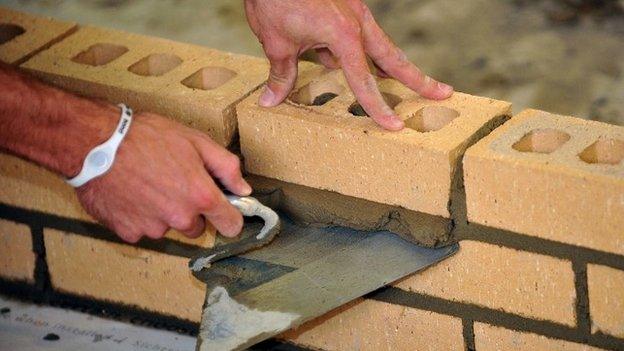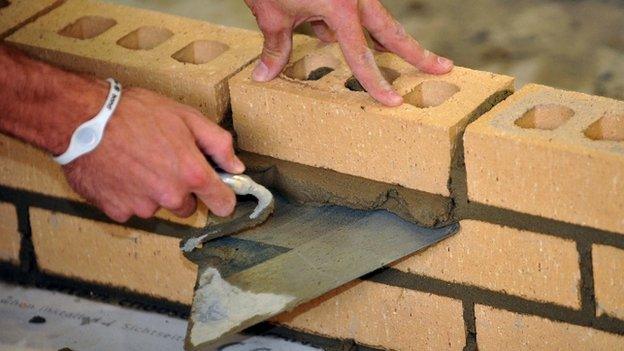Fake apprenticeships - crackdown planned
- Published

Apprenticeships should offer world-class training, says the government
Young people are being lured into fake apprenticeships, only to find out later they are unqualified, say businesses and bona fide training providers.
These schemes can leave students out of work, according to responses to a consultation on plans to give apprenticeships legal protection.
A planned government crackdown will include powers to prosecute trainers who misuse the term "apprenticeship".
Apprenticeships need similar controls to university degrees, say ministers.
"Everyone knows what a university degree means," said Skills Minister Nick Boles.
"It's an official title. Young people doing apprenticeships should get the same level of distinction."
The government response, external follows the introduction of the Enterprise Bill, external, which includes a clause on prosecuting providers who claim to be offering apprenticeships but in fact offer only low-level training.
The word "apprenticeship" would be defined in law "to ensure people get the best training and opportunities", said Mr Boles.
Too many young people are entering industry only part qualified and without adequate learning, work based experience and practical skills, says the government.
Some have to find new employers to achieve complete a full apprenticeship.
Anyone offering fake or low-quality apprenticeship training could face a fine and prosecution in a magistrates' court if the bill becomes law as it stands.
'Poor workmanship'
The government's consultation on protecting the term "apprenticeship" ran in August and received more than 90 responses from employers, private training providers, colleges, universities and schools as well as from apprentices themselves.
Two-fifths said they were aware of the term being misused, among them the building company Balfour Beatty and a family firm of electricians from Milton Keynes.
Ruth Devine, director of SJD Electrical, said a number of applicants to the firm who thought they had completed apprenticeships, had been surprised to find they had not been fully qualified.
"Protecting the term 'apprenticeship' will help us attract the most able individuals and offer a guarantee to apprentices that they will receive world-class training," said Ms Devine.
"Low quality training courses contribute to the many instances of poor workmanship we come across."
Leo Quinn, Balfour Beatty Group chief executive, said he hoped the change would encourage businesses to invest in apprenticeships.
"Our industry needs talent and skills, therefore it is crucial that apprenticeships remain world-class so that we can continue to attract the best and brightest individuals," he said.
David Corke, director of education and skills policy at the Association of Colleges, backed moves to "protect the apprenticeship brand" and maintain quality "so that young people receive the education and training they need to play a significant role in the workplace".
He added: "Colleges work closely with employers to make sure apprentices have a good experience and that the employer receives an employee who is well qualified for the role."
- Published3 July 2015

- Published24 May 2015

- Published11 March 2015

- Published20 February 2015
